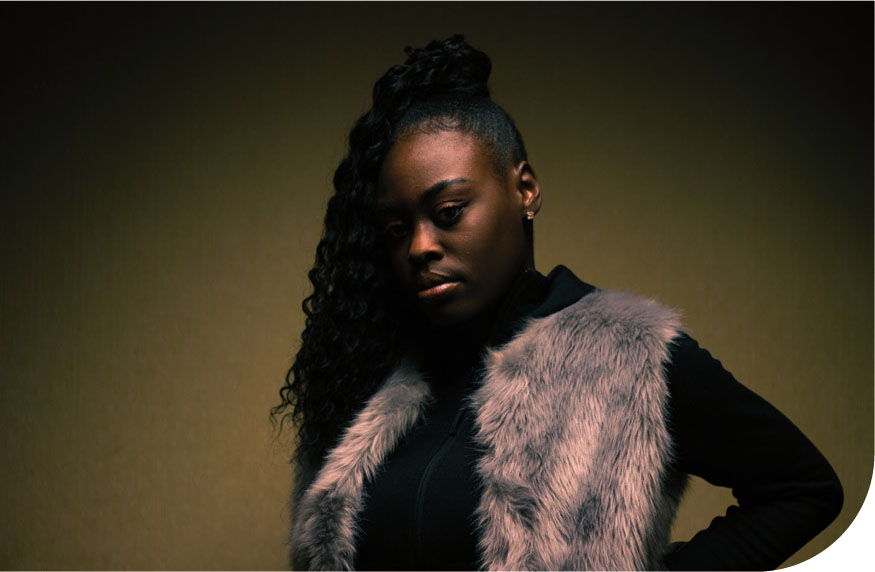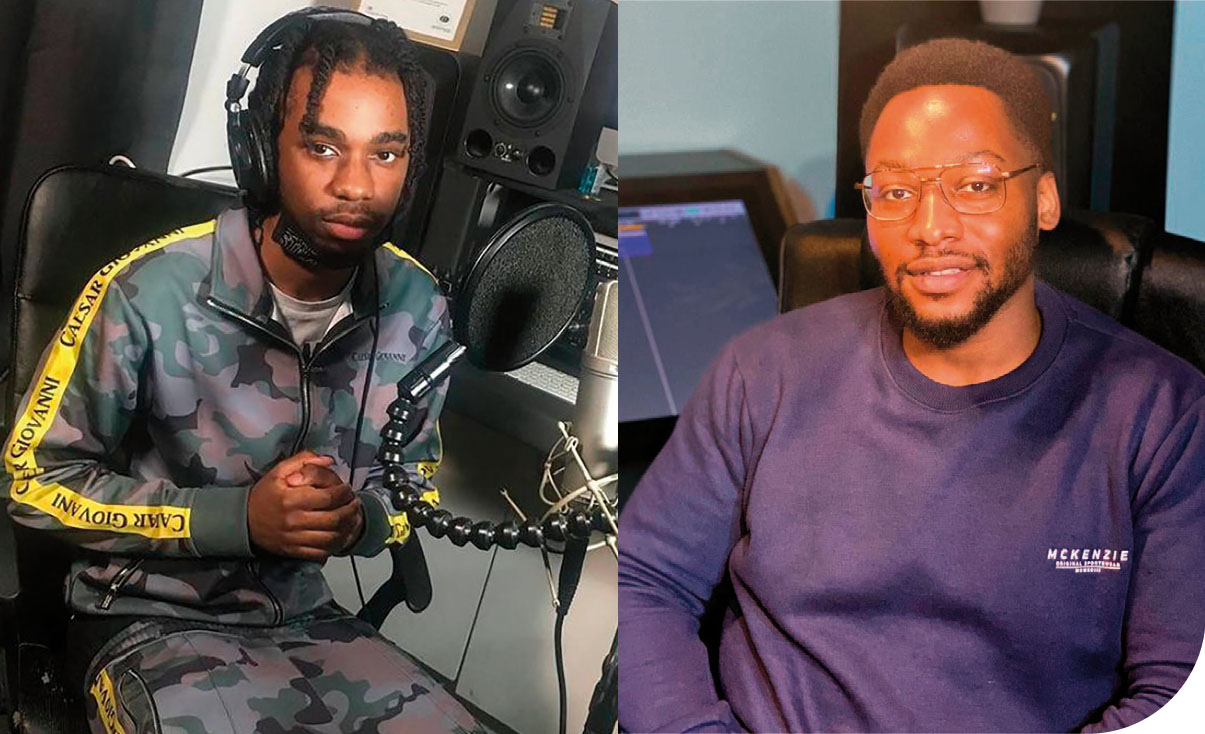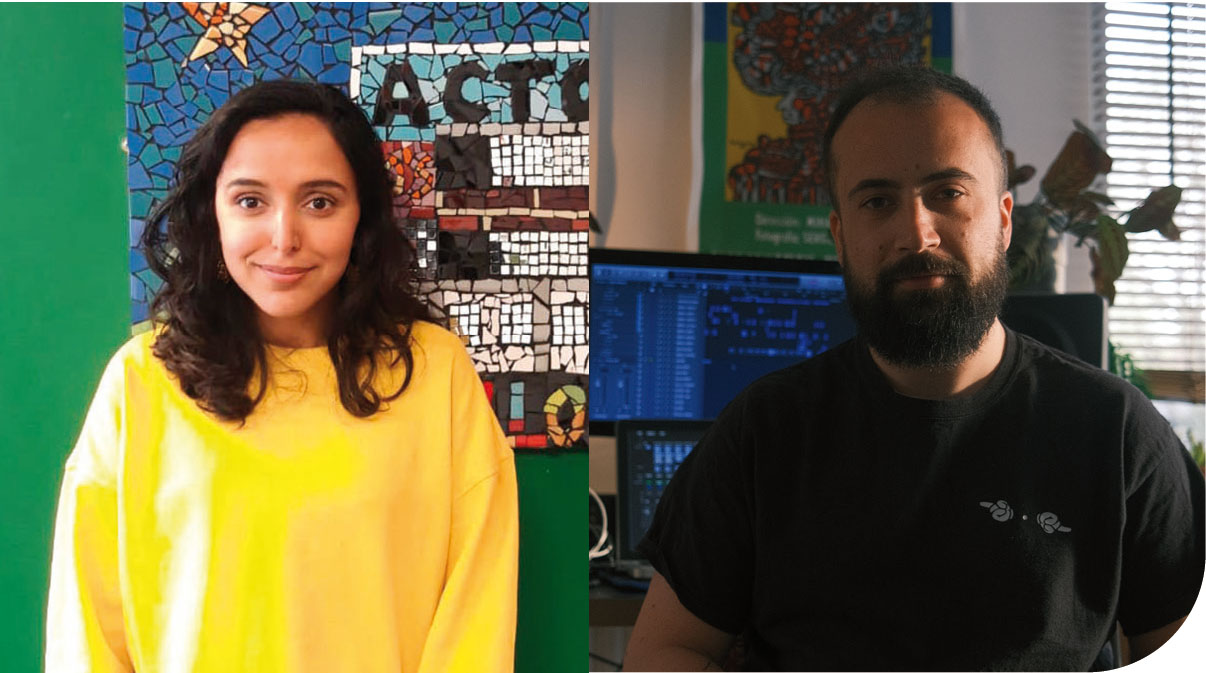
'I feel like the importance of Bollo has never been stronger,’ says Reuben Griffiths (Reuben G), sound producer and music lead. ‘It's home to a lot of the young people who come, for the music, for the youth club, for the art, or just to come and play FIFA. I always say that I can tell that young people feel comfortable there by the number of people who fall asleep on the sofas in the studio.’
Providing youth services is never straightforward. Funding is always tight, and it's usually impossible to please all stakeholders. In January 2020, the YMCA found that between 2010 and 2019, England and Wales saw the loss of 750 youth centres and more than 4,500 youth workers. But despite the ongoing battles, worsened of course by the pandemic, providers continue to be this ‘home’ for young people, many of whom are considered vulnerable.
Bollo Brook youth centre is one such provider and has been offering a place of safety and creativity for the young people of South Acton and the surrounding area for 50 years. Led by a team of youth workers headed up by Colin Brent and run by Ealing council, for the last 20 years the youth centre has also housed a music production studio open for around 30 free hours a week.
Griffiths has been at Bollo for nearly 10 years, having studied Music Production at Leeds College of Music. He says that around 250 young people use the studio each year. ‘That will be people dropping in for half an hour to try using the studios, then we have a core group who will come whenever there's a possibility of them being there. We work with a lot of young people where school hasn't really worked for them, but they're very focused on their music.’
Yasmin Dosanjh, who has a dual role of art tutor and art psychotherapist at the youth centre, adds: ‘I think the studio gives them a huge amount of hope.’ She explains that arts provision in nearby schools has been cut: ‘There is a huge gap there in provision for young people who desperately need avenues to express themselves. All young people do, but particularly young people going through so many different issues.’ As well as creating large art pieces with the young people at Bollo, Dosanjh also offers one-to-one therapy on a referral basis, using art and lyric-writing as mediums through which to enable her clients to open up. The art at Bollo, as well as the studio, is available thanks to funding from Youth Music and the Greater London Authority Young Londoners Fund.
The young people who come to Bollo are aged 13–25, and Griffiths says: ‘A lot of them struggle with school, with the structure of school and formal education. Most are very intelligent, but some people just aren't built for school, it doesn't work for them and it doesn't interest them. Some are in employment. It's a very mixed bag and it's always changing – the ethnic groups are always changing as South Acton as an estate changes.’
He adds: ‘A lot of them have very chaotic lives – not all, but some – so you might be working very intensely with someone and then they might just disappear for six months. There is a lack of structure, so you just have to be ready for stuff to be thrown at you a bit. It's an informal space and there's lots of thinking on your feet and delivering stuff to their needs as it goes along.’
I bring up a 2019 Guardian article, which suggested that local residents want the youth centre to be closed down and turned into a coffee shop. ‘That was a bit of a problematic article to be honest,’ says Griffiths, explaining that the surrounding area has changed hugely in recent years – the youth centre is now based at the foot of a block of high-end flats. ‘There is truth to it, and there was a petition – the situation is not perfect. But I felt that the article was a little unhelpful in accenting the problem. Some people have no problems with it, but there's always going to be a small loud minority who do. We're not going anywhere, so there's not going to be a coffee shop in its place.’
‘That one safe place’
Twenty-one-year-old Godwin Kyeremeh (Blackstar) has been Griffiths’ studio apprentice since 2017. ‘I first went there volunteering for my sixth form – they welcomed me as family, and I've just been going back ever since.’ Having spent several years gaining skills and guidance from Griffiths at the studio, Kyeremeh now studies Sound Engineering and Music Production at Point Blank Music School in London alongside the role.
I ask Kyeremeh how Bollo compares to his formal education. ‘It's very different in the sense that it's more practical. With GCSEs and formal education, you learn more about the theory side of it, while you just do the practical side for the sake of getting a basic understanding. But when I come here, I actually physically apply it.’ After university, he plans on starting up his own studio, as well as giving back to the community. He adds: ‘Maybe one day I shall win certain plaques and maybe a Grammy, hopefully.’
The young sound engineer also shares his views on the significance of Bollo for the young people it serves: ‘I believe it's very important. Even for me, even though I'm not from Acton myself, just having that community there, somewhere you can go to and just be you, is really important. If you go there, you don't feel that you have to do a certain thing or be a certain way, you can just be you, and people will accept you. It's like a haven for people. If it wasn't there, I'd say there would be a bit more chaos.’
‘Bollo is just a great place. All the youth centres are – I believe that they should give a lot more attention to youth centres because sometimes you might overlook how important it is, but for the people who come, it's that one safe place where they can really feel secure.’
Prioritising creative industries
The studio has a reputation in the area for producing high-quality music from emerging artists. Griffiths says: ‘As much as I can, I try and treat it as a professional space to a standard of somewhere they would pay for.’ At the same time, he is keen to stress that it's not just a free-forall musically. ‘The other side is that we're always trying to push them. Because we're associated with the council, we have to be careful with lyrical content – not squeaky clean, but maybe we're somewhere between a place where you pay and do whatever the hell you want, and a school. ‘That kind of soft touch can be useful to steer people away from clichés. The very entry-level when you want to rap, you're violent, you swear a lot – it's kind of rap 101. Just with some careful boundaries which keep the centre safe, which keep what we're doing on the right side of things, it pushes them to think a bit more, to put more into it, and think about their commercial success.’
 © Matthew Moutos
© Matthew Moutos
Niisey
One emerging artist to come out of Bollo is singer-songwriter Niisey – 20-year-old Aniis Ngubo-Allen, who recorded her first song in 2017 and has performed at multiple festivals and events. She came to the studios almost by chance, but says, ‘Since then, I've just been there all the time, recording, making songs, learning how the industry works – it's been a really good experience’.
Ngubo-Allen took GCSE Music at school and went on to study music performance at college, before deciding to focus on applying her skills in the professional field. Speaking about her musical style and aspirations, she says: ‘I started off with an Afroswing approach, more like the summery-type songs you would hear on the radio, and now I'm trying to broaden that and go into more soul, RnB, genres that people don't really touch upon because I'm trying to be different as an artist – that's what's most important to me growing in the industry.’
We talk about the youth club more generally, and Ngubo-Allen says it is ‘probably the best in London to be honest’. She continues: ‘There are a lot of youth clubs but they're just for people to not get distracted, to either meet new people or not be affiliated with the wrong people – they do have workshops and experiences so you can grow as a person, but I think Bollo really touches on industries that aren't touched on enough.
 © BOLLO
© BOLLO
Left: Kavelly Right: Blackstar
‘The creative industry is a very hard industry to get into, and they give us opportunities to see what it's like, to grow as an artist, grow as a musician, grow as a producer, engineer, or even an artist as in painting. There are so many different things you can do that you would want to do as a young person, or just a person in general, and it would be hard to get that experience because it's either very expensive, it takes a lot of time to get into colleges or universities, or it's just not good for you as a person. Sometimes it can just be too hard – but I think Bollo gives you that opportunity if you just keep pushing.’
Like Kyeremeh, Ngubo-Allen's ambition, alongside producing more music and having her own studio, is to give back to the Bollo community. ‘If I were to become big in the industry, I want to make an impact on where I've come from – I've known a lot of people in the industry who have done the same thing for Bollo. I wouldn't want to just leave and not be seen – I'd want to use what I've learnt from them and what they've done for me to give back.’
Music as a gateway
Alongside the music production, Griffiths says that a big part of the studio's purpose is getting people through the doors. ‘Then maybe there will be a careers advisor in the building, or there will be a drugs worker in the building, and obviously there will always be youth workers. People want to use the studio, they want to work with me, and then there's this satellite part of it where they can get support. We work with a lot of vulnerable young people – it might be housing; it might be trying to get into college or employment.’
Zacharias Lutaaya-Musoke (Kavelly), aged 21, started using the studios at Bollo when he was 13. Initially producing solely drill music, he has now ‘opened up’ to experiment with other genres such as Auto-tune rap, and Real Rap. ‘I had a lot of work to do – I could write, but my delivery as a rapper wasn't all there. As I got older, I worked on my art and I've improved a lot. I'm trying to do the storytelling thing and make people relate to my music.’ As well as improving musically over the years, Lutaaya-Musoke has also taken up other opportunities offered at Bollo, such as public speaking at Sound Connections’ events, and art therapy with Dosanjh. ‘I probably wouldn't have been able to get therapy – or that kind of therapy – as easily as that if I hadn't gone through Bollo and started going initially for the studio. It was like I went through one door – music – and then it opened different doors.’
I ask how the therapy has been. ‘Very useful,’ he says. ‘It helps me realise more about myself as an individual and to dig deep into why I am a certain way. It's in a comfortable environment at Bollo – I know everyone there, I know Yasmin. They're very welcoming and she doesn't look at me any different.’
Since taking on the art therapist role in 2020, Dosanjh now works with six young people. She says, ‘The majority are 18 and up and they are male, and they're not really the typical demographics of who you would expect to be attending therapy.’ She explains that getting her clients to engage in the art-making ‘is a little trickier’, but says, ‘In terms of opening up therapeutically, it has not been difficult to engage them at all. I think that is to do with the fact that, in most instances, they're familiar with Bollo and the studios already.’
 © BOLLO
© BOLLO
Left: Yasmin Dosanjh Right: Reuben G
Although every young person at Bollo has a different story, common threads running through the lives of the young people Dosanjh works with include the impact of the drugs trade, as well as the random violence, poverty, and the long working hours that are associated with it. She has found that art enables some of the young people to discuss these experiences: ‘Art sometimes taps into what you wouldn't express verbally. We're quite good at tempering what we say, but when we start creating – whether it's musically, dance, artistically – our subconscious is at play.’
Throughout, we have discussed the studio's success stories, the personal growth evidenced in the young people, and the musical output of the artists. Yet Griffiths says: ‘There are frustrations – there are people who are improving and then maybe they go to prison. It's easy to talk about these things and be very positive and say it's great, but there are lots of frustrations with people's complicated lives and other stuff getting involved.
‘People see the output that we have and the work that we do, and they think we're just making it happen. This has happened because [the young people] feel comfortable, because they've been coming for such a long time and they've built up this relationship. It doesn't happen overnight, and it only happens after hours and hours of attendance that is available to them.’
Is money the only thing preventing creative opportunities like this being available to all young people? Dosanjh thinks not: ‘Money is obviously a factor, if we're talking specifically in education. But it's also what's prioritised and what's emphasised. What we could be doing at Bollo instead of having a studio, the art and the therapy, is we could have a homework club, and we would probably attract a whole different cohort of young people. But it's unlikely then that we would be working with the most vulnerable.’








